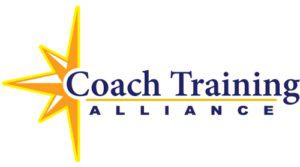
How to Get New Life Coach Clients: Proven Strategies for Success
As a life coach, building a thriving practice requires attracting new clients and maintaining long-term relationships. Whether you’re just starting out or have been coaching for a while, growing your client base can sometimes be challenging. However, with the right strategies, you can steadily increase your client roster and expand your reach. Below are effective techniques to help you attract new clients, build credibility, and grow your life coaching business.
1. Identify Your Niche and Ideal Client
The first step in attracting new life coaching clients is to clearly define your niche. A niche specifies the particular area you focus on, such as career coaching, relationship coaching, health and wellness coaching, or personal development. Having a clear niche helps you stand out in a competitive market, making it easier for prospective clients to find you.
It’s equally important to identify your ideal client. Knowing your target audience allows you to customize your messaging and services to meet their needs. Ask yourself:
- What are their biggest pain points?
- What goals are they trying to achieve?
- What challenges are they facing?
Answering these questions will allow you to create content and coaching packages that resonate with your audience and address their specific needs.
2. Build a Strong Online Presence
In today’s digital age, having a strong online presence is crucial. Most potential clients will search for information online before deciding to work with a coach, so ensuring that your online presence reflects your expertise and credibility is key.
Website
Your website serves as your digital storefront. It should be professional, user-friendly, and highlight your services, testimonials, and credentials. Include clear calls to action (CTAs) on each page to encourage visitors to book a consultation or sign up for your newsletter.
Consider adding a blog to your website. Blogging allows you to demonstrate your expertise, provide value to potential clients, and improve your search engine optimization (SEO). By publishing articles relevant to your niche, you can attract more organic traffic and position yourself as an authority in your field. You can learn more about how to optimize your life coaching business online through resources like Coach Training Alliance’s programs.
Social Media
Social media is a powerful tool for reaching potential clients. Platforms like Instagram, Facebook, LinkedIn, and TikTok allow you to engage with your target audience, share valuable content, and build your brand. Share client testimonials, behind-the-scenes insights into your coaching process, and educational posts related to your niche.
On LinkedIn, for example, you can position yourself as a thought leader by publishing articles, engaging in discussions, and connecting with professionals who may benefit from your services.
SEO
Optimizing your website and content for search engines is essential for attracting potential clients. Conduct keyword research to find terms your ideal clients are searching for, such as “life coach near me,” “career coach for women,” or “how to overcome anxiety.”
Incorporate these keywords naturally into your website copy, blog posts, meta descriptions, and page titles to improve your chances of ranking higher in search engine results, making it easier for potential clients to discover your services.
3. Offer Free Value
One of the best ways to attract new clients is to offer free value. People are more likely to hire a life coach if they experience firsthand the benefits of your coaching. Offering free resources allows you to showcase your expertise and build trust with potential clients.
Free Consultations
Offer a free 15- or 30-minute consultation to prospective clients. This gives them the chance to experience your coaching style, ask questions, and determine if you’re a good fit for their needs. It also provides you with an opportunity to understand their goals and explain how you can help them achieve those objectives.
Free Content and Resources
Create free downloadable resources like eBooks, checklists, or guides that relate to your niche. For example, if you specialize in career coaching, you could create a guide titled “How to Ace Your Next Job Interview.” Offering these resources in exchange for an email address helps you build your email list and nurture leads over time.
Webinars and Workshops
Hosting free webinars or workshops is a great way to engage potential clients and demonstrate your expertise. Choose a topic that aligns with your ideal client’s needs and provides valuable insights. At the end of the session, offer a promotion or invite attendees to book a discovery call with you.
4. Leverage Testimonials and Case Studies
Social proof is a powerful tool in marketing your life coaching services. When potential clients see others achieving success through your coaching, they are more likely to trust and hire you.
Client Testimonials
Collect testimonials from satisfied clients and feature them on your website and social media platforms. Make sure the testimonials highlight specific details about the client’s experience and the results they achieved. For example, instead of a vague statement like, “John is a great coach,” try something like, “With John’s guidance, I built confidence, landed my dream job, and significantly reduced my stress.”
You can find more tips on gathering testimonials effectively through resources such as Coach Training Alliance’s testimonial page.
Case Studies
In addition to testimonials, create detailed case studies that tell the story of how you helped a client overcome challenges and reach their goals. Include the client’s initial situation, the strategies you used, and the measurable results. Case studies provide persuasive evidence of your effectiveness as a coach and can be a powerful tool in converting leads.
5. Build Partnerships and Referrals
Partnerships and referrals are valuable ways to grow your life coaching practice. By establishing relationships with complementary professionals and encouraging word-of-mouth referrals, you can expand your network and attract new clients.
Strategic Partnerships
Partner with other professionals who serve your target audience. For example, if you specialize in health and wellness coaching, consider partnering with personal trainers, nutritionists, or yoga instructors. These professionals can refer clients to you, and in return, you can refer clients to them, creating a mutually beneficial relationship.
Referral Program
Create a referral program that incentivizes your current clients or professional contacts to refer new clients. Offer a discount on their next session or a free coaching session in exchange for successful referrals. This encourages satisfied clients to spread the word about your services and helps you reach a broader audience.
6. Attend Networking Events and Workshops
Networking remains one of the most effective ways to build relationships and find new clients. Attending local and online networking events gives you the opportunity to connect with prospective clients and other professionals who may refer clients to you.
Join Coaching Communities
Being part of a coaching community can provide valuable opportunities for networking with other coaches and potential clients. Consider joining organizations such as Coach Training Alliance, where you can engage with peers, share knowledge, and increase your visibility in the industry.
Host Your Own Events
In addition to attending events, consider hosting your own workshops, meetups, or webinars. This positions you as an expert in your field and gives potential clients a chance to experience your coaching style before committing to your services.
7. Utilize Paid Advertising
Paid advertising can be an effective way to reach new clients quickly. Platforms such as Google Ads, Facebook Ads, and Instagram Ads allow you to target specific demographics based on location, interests, and behaviors.
Google Ads
Google Ads allows you to target potential clients who are actively searching for life coaching services. For example, you can create ads targeting keywords like “life coach in [your city]” or “how to achieve personal goals.” This ensures that your ads are shown to people already interested in your services.
Facebook and Instagram Ads
Social media platforms offer highly targeted advertising options. You can create ads that target specific age groups, interests, or life events (e.g., career changes, recent breakups, etc.). Be sure to create visually engaging ads with a clear call to action, such as “Book a Free Consultation” or “Download Our Free Guide.”
8. Engage with Your Email List
Email marketing remains one of the most effective ways to nurture relationships with potential clients. Building an email list allows you to stay in touch with people who have already expressed interest in your services.
Send regular emails with valuable content, tips, and insights that are relevant to your niche. Share client success stories, upcoming events, or special offers to keep your audience engaged. Be sure to include a strong call to action in every email, encouraging subscribers to book a consultation or take the next step in their personal journey.
9. Continuously Improve Your Skills
As a life coach, your skills are your most valuable asset. Continuously improving your coaching techniques, staying up-to-date with industry trends, and learning new strategies will help you provide better results for your clients—and attract new ones.
Invest in Professional Development
Consider enrolling in advanced coaching programs, attending workshops, or earning additional certifications. Clients are more likely to hire a coach who demonstrates a commitment to ongoing education and professional growth.
Gather Feedback
Regularly ask for feedback from your clients to identify areas for improvement. Not only does this help you become a better coach, but it also shows clients that you are dedicated to their success.
By implementing these strategies and staying dedicated to providing high-quality coaching, you’ll be well on your way to a thriving life coaching business with a steady stream of new clients.



